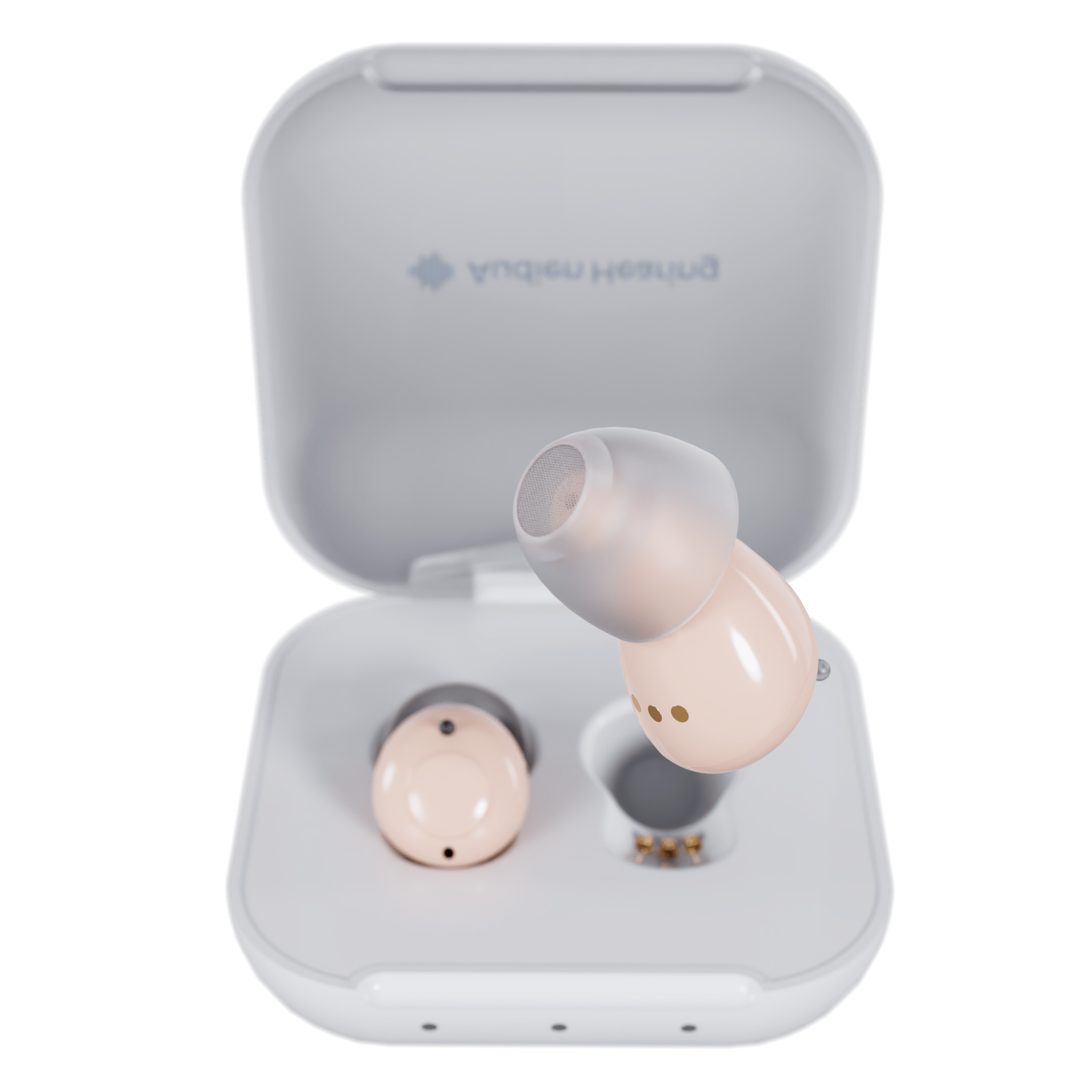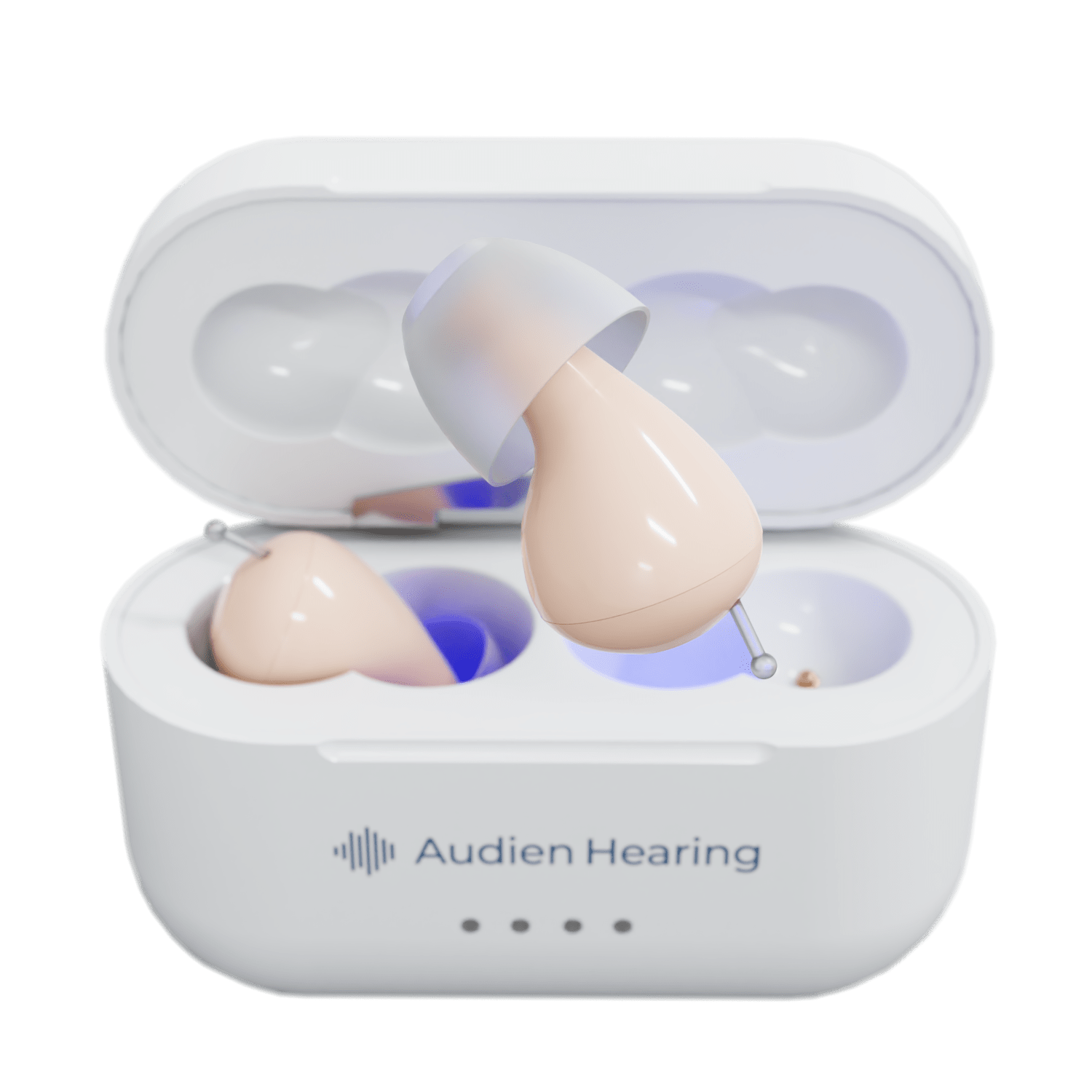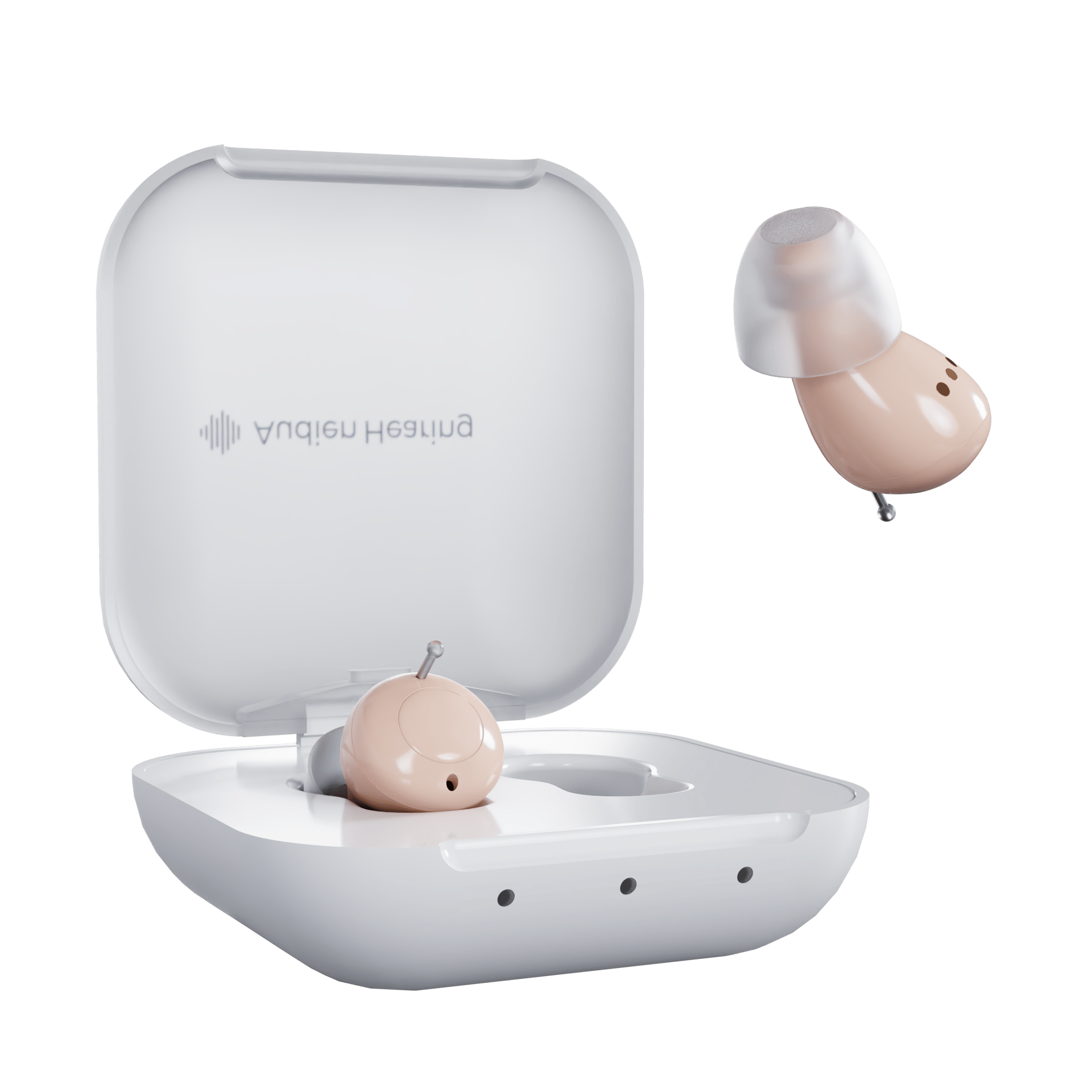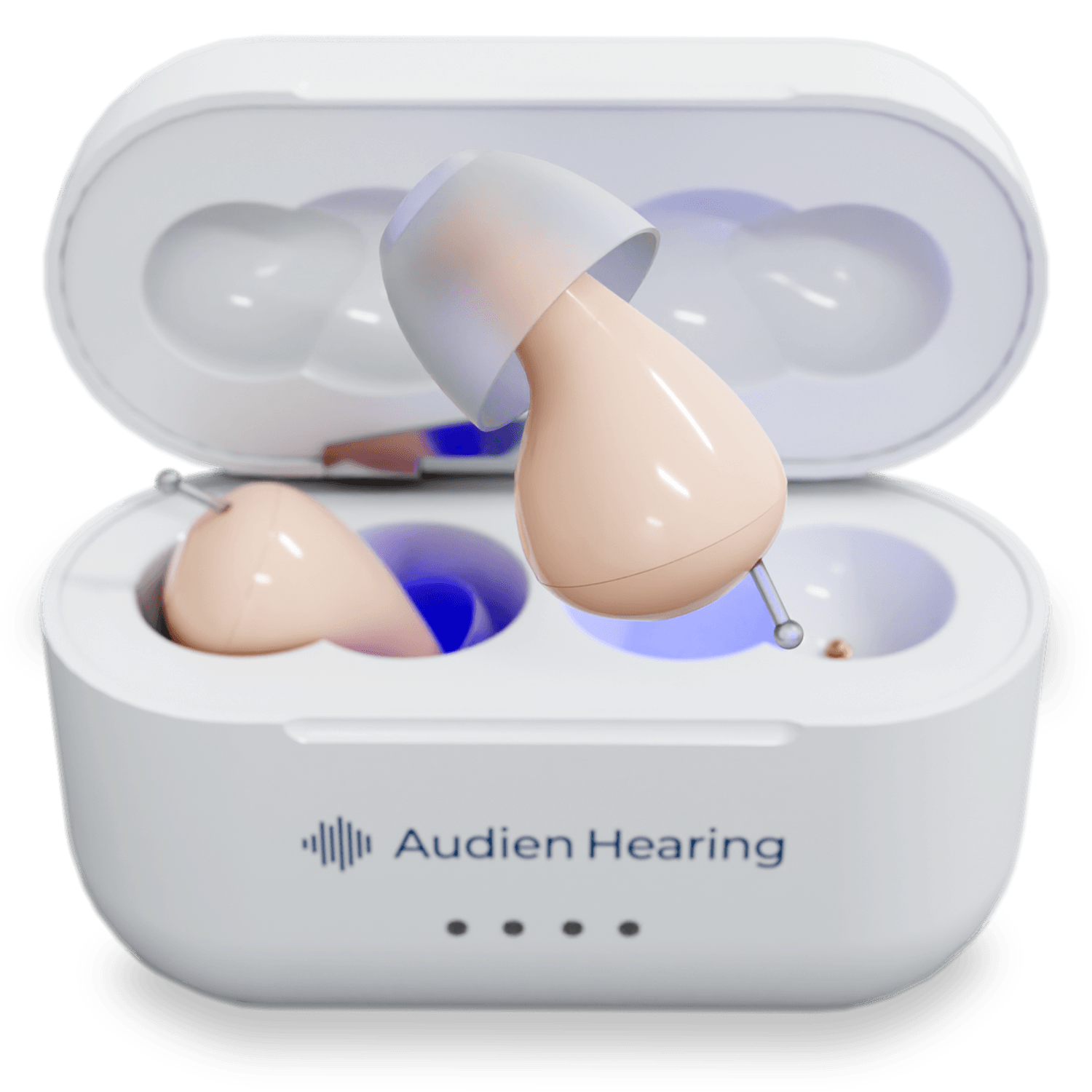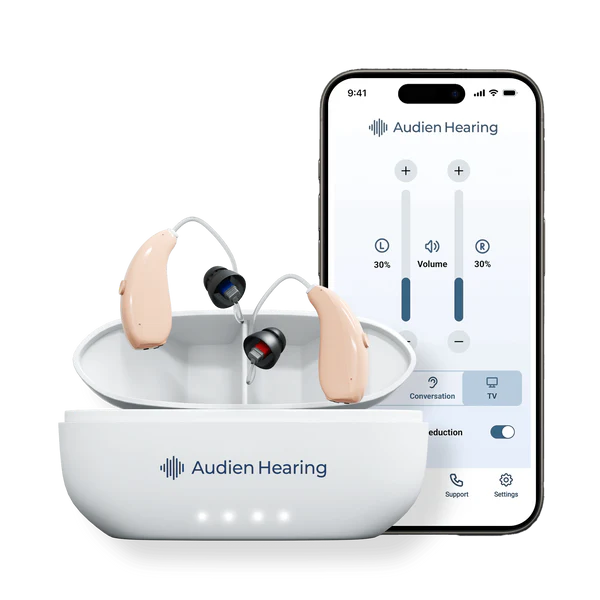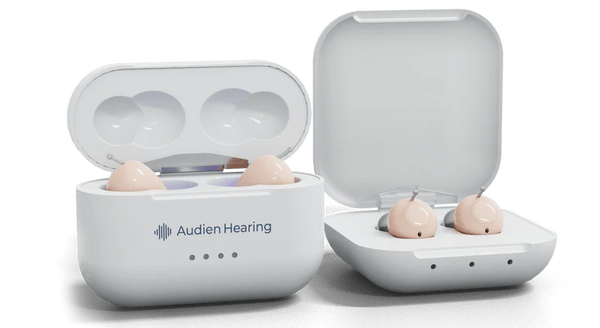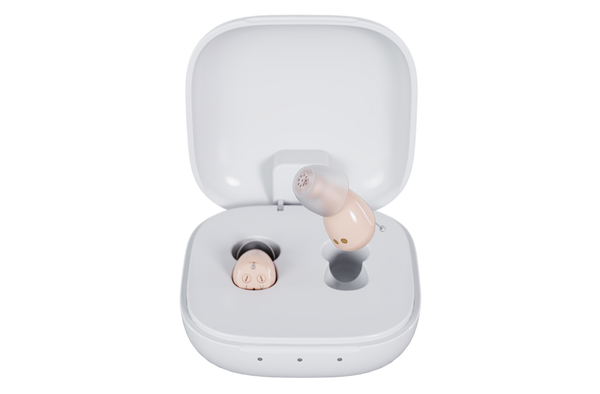You may be aware of cheap hearing aids these days as new over-the-counter hearing products become available on the market. These aids do not require a prescription, making them much more cost-effective for people with mild to moderate hearing loss that need a sound boost for daily activities. A low-cost hearing device allows people to improve issues related to hearing loss at their discretion.
Are Cheap Hearing Aids Effective?

The best hearing aids are the ones people actually wear.
Untreated hearing loss can significantly impact a person’s life—limiting social interaction, increasing isolation, and even affecting cognitive health. For years, hearing aid manufacturers have worked to recreate sound as naturally as possible. While prescription hearing aids offer advanced technology and custom programming, they are often expensive and can be out of reach for many individuals. And when a hearing aid isn’t a good fit—due to cost, complexity, or comfort—it’s more likely to sit in a drawer than be worn regularly.
Fortunately, recent advancements in low-cost hearing aid technology have opened the door for more people to find meaningful support. Modern over-the-counter (OTC) hearing aids are now equipped with sophisticated chips designed to reduce background noise and enhance clarity—providing natural, crisp sound at a fraction of the cost.
Importantly, it’s not that prescription hearing aids “fail”—they remain the best choice for people with complex hearing needs or who require personalized fitting and care. But many individuals with mild to moderate hearing loss don’t need highly customized devices or frequent provider visits. For them, affordable OTC hearing aids can be a convenient and effective solution.
As technology continues to improve, users on a budget have more access than ever to high-quality options—making it easier to upgrade and stay connected to the sounds that matter most.
How Does Hearing Loss Affect Your Life?
Hearing loss is more than an inconvenience—it’s a significant health concern that can impact brain function. The ability to hear plays a critical role in stimulating cognitive processes such as memory, attention, and processing speed. When hearing is compromised, the brain has to work harder to fill in missing sounds, leading to what many people describe as “listening fatigue” or a tired brain.
This increased cognitive effort—often called cognitive load—can reduce mental sharpness and leave individuals feeling exhausted after social interactions. Over time, untreated hearing loss may contribute to changes in brain structure and function, and has been associated in multiple studies with an increased risk of cognitive decline.
Using hearing aids, even affordable over-the-counter models, can help reduce this cognitive strain by improving access to speech and environmental sounds. By reducing the brain’s need to compensate for missing input, hearing aids support more efficient neural processing and help maintain cognitive stimulation.
When communication becomes difficult, people may begin to withdraw from conversations and social settings. This social isolation can lead to depression, anxiety, and a further reduction in brain engagement—creating a cycle that’s both emotionally and neurologically harmful. While researchers are still exploring the full extent of the relationship between hearing loss and brain health, existing studies clearly demonstrate that hearing plays an essential role in overall cognitive and emotional well-being.
Why Is It Important To Have Hearing Aid Options?

One of the most important benefits of affordable hearing aids is increased access. Traditional prescription hearing aids can cost thousands of dollars per pair, and while some insurance plans cover hearing aids fully or partially, many do not—or they may only cover the devices but not the required appointments and fittings with a hearing care provider.
This lack of consistent coverage creates a barrier for many people, especially those on fixed or limited incomes. Additionally, hearing aids have a limited lifespan—typically 3 to 7 years—making replacement costs another long-term concern for users who rely on them daily.
That’s why it’s essential to have a range of hearing aid options, including over-the-counter (OTC) models. These newer, lower-cost devices are designed for adults with perceived mild to moderate hearing loss and can be purchased without a prescription, offering a more accessible solution for those who may not need complex customization or ongoing clinical care.
Everyone’s hearing needs are different—and having more choices means more people can find a solution that fits their lifestyle, hearing goals, and budget.
Buy Powerful Cheap Hearing Aids

Audien Hearing is your resource for powerful and comfortable hearing aids. With the Atom series processor, gone are the days of annoying and embarrassing whistling and feedback. Our devices allow for easy setup and offer long battery life. When the power runs down, the portable charge case holds four days of charging capacity because we understand portability and reliability matter to our customers.
Cheap hearing aids are great alternatives for people who need hearing support and want quality products. Our devices come with a one-year warranty and service support. Check out our hearing aids and carry accessories and learn how these products can make your experience convenient and enjoyable.
https://www.nidcd.nih.gov/health/over-counter-hearing-aids
https://www.audiology.org/consumers-and-patients/hearing-and-balance/fatigue/
